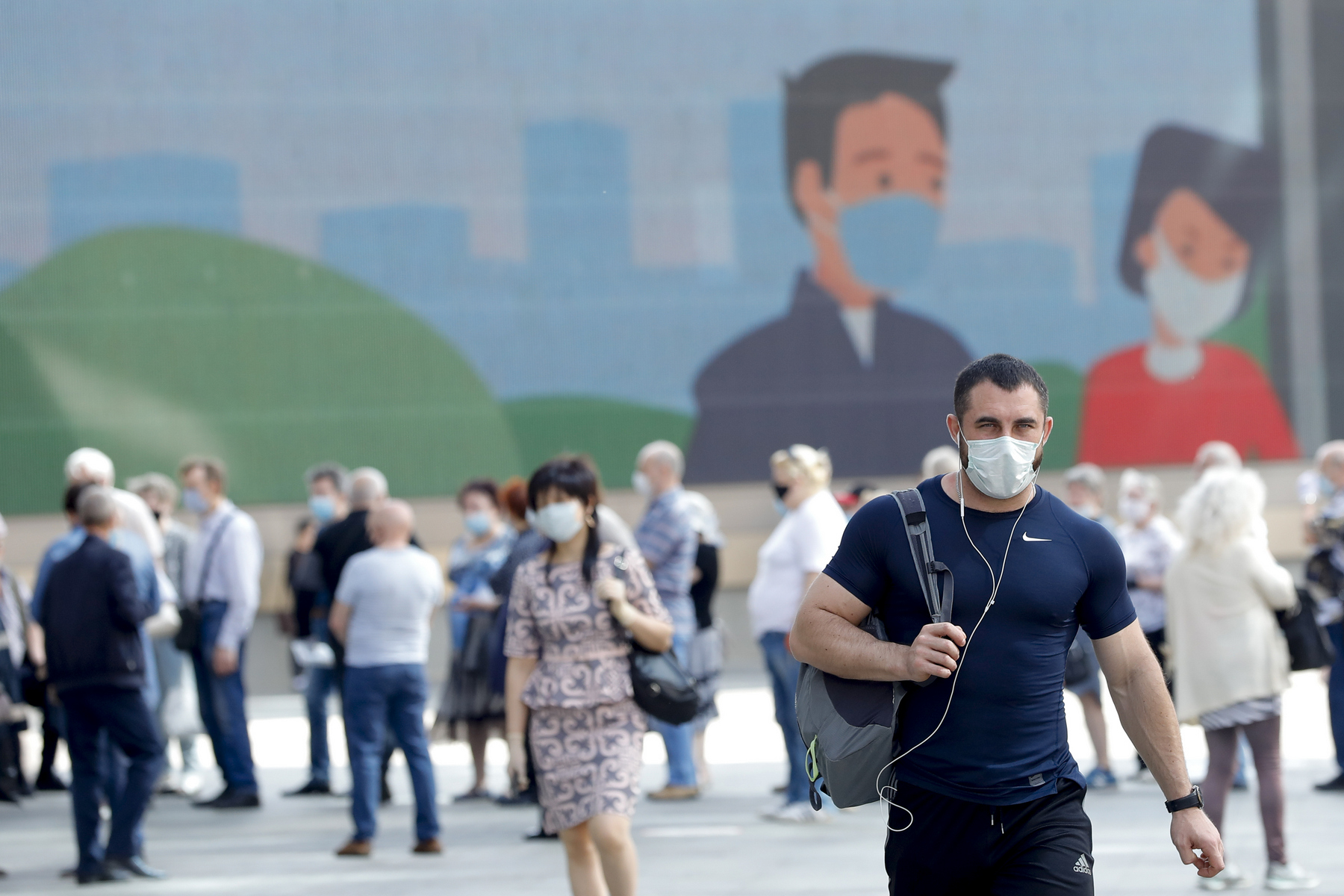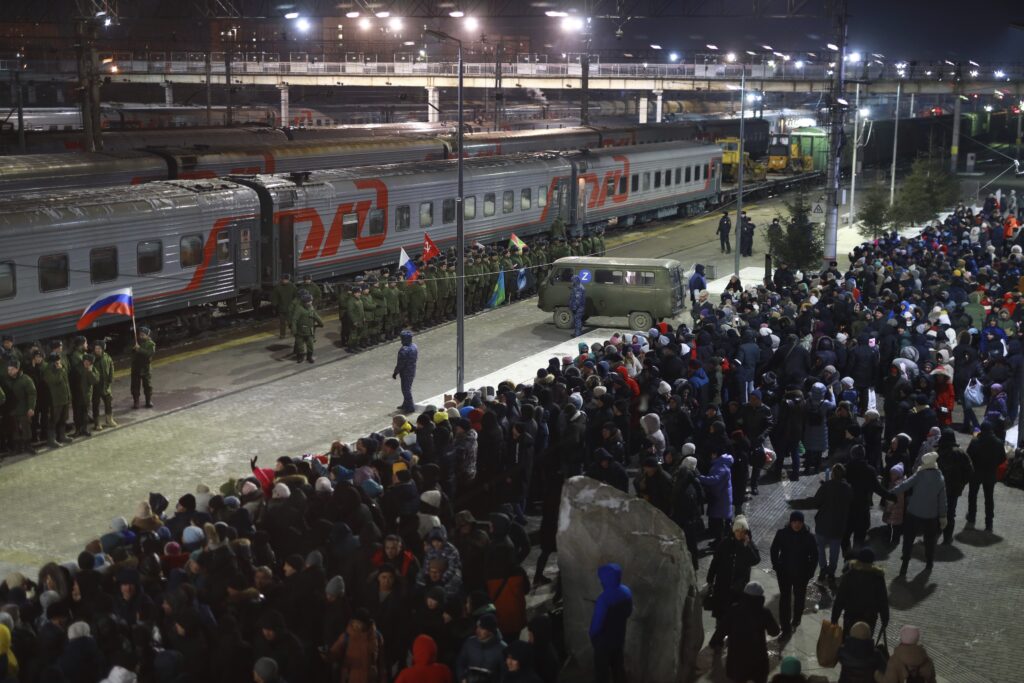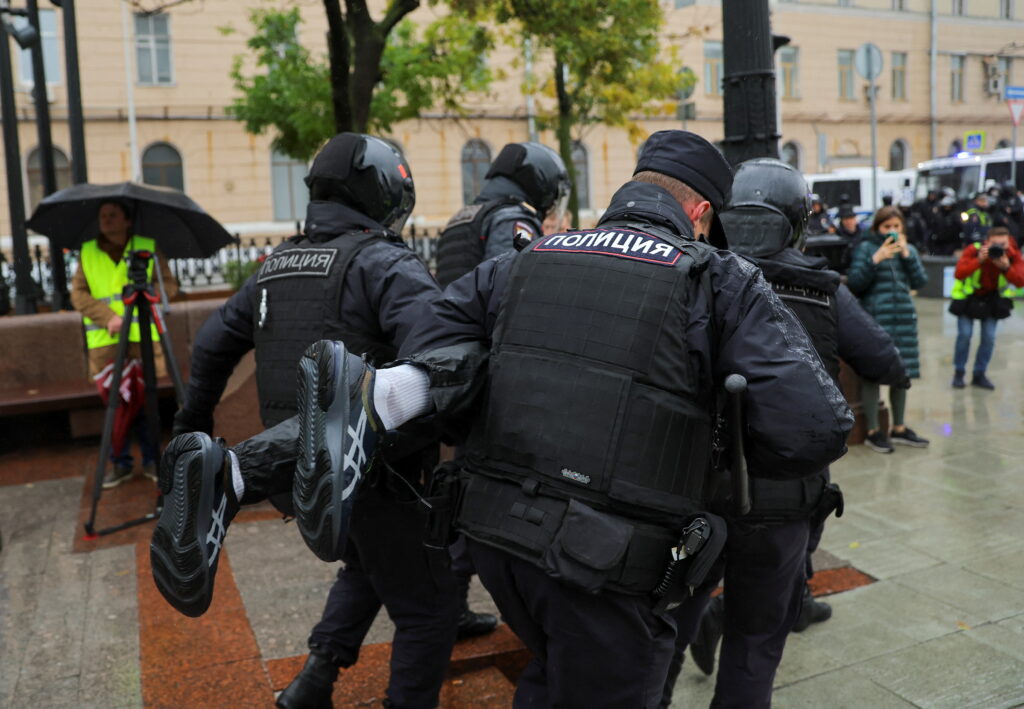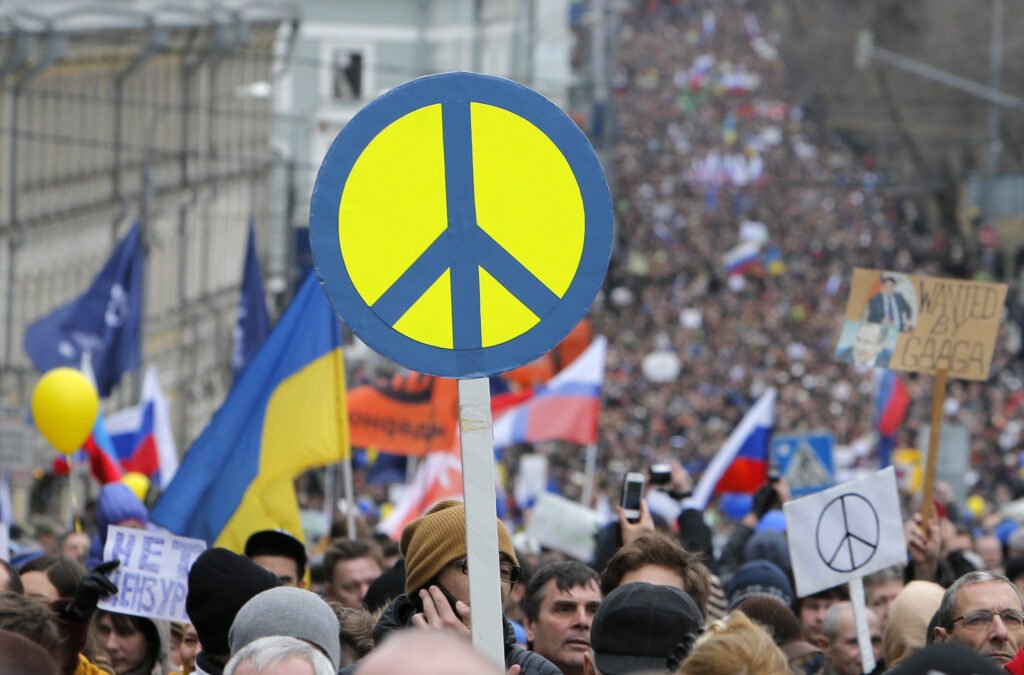The COVID-19 pandemic has had a significant impact on Russian society. Many people have had to switch to remote work or study and be quarantined. And that is not to mention those in a more extreme situation, like those who contracted the disease or lost jobs. According to daily surveys by the Public Opinion Foundation (FOM), the proportion of those whose lifestyles have not changed plummeted from 60% at the beginning of the pandemic to 20% after the imposition of the lockdown measures (Figure 2). Nearly half respondents believe many people in their social circle are afraid of losing their jobs. 5−6% have already suffered this fate, and regular measurements only started to be collected with a delay, so data are only available from the second half of April, meaning the real situation may be worse. Finally, nearly 50% of respondents surveyed by the FOM say their incomes have dropped.
How have these changes influenced Russians’ attitude toward the government? Social scientists tell us that external shocks, especially of a natural origin, tend to lead to a short-term rallying round the flag. This bolsters political support for the authorities in general and individual political leaders in particular. For example, in South Korea, the ruling coalition led by the Toburo Democratic Party won a landslide victory in March. In Finland, support for the Social Democratic Party, the coalition leader, has increased significantly since the beginning of the pandemic. Usually, the support dynamics under these circumstances depend on who or what the population holds responsible for the developments. The level of support for the government grows when the majority believes that it is force majeure, not wrong policies by the authorities, that is the cause of the trouble.
In Russia the attribution of responsibility is somewhat different. No ‘rallying round the flag’ in the face of the pandemic has been observed. According to the FOM, at least one-third of respondents believe that the healthcare system is not ready to withstand the epidemic. The proportion of those who state that the authorities have taken the wrong steps has increased from 10% to 30%. At the same time, the number of respondents who distrust information on the coronavirus is growing, most recently reaching nearly 50% (Figure 1). Approximately the same number of respondents consider information about the coronavirus excessive, though this share fell from 60% to 45% in the period from March 21 to April 2.
Figure 1: The pandemic and dynamics of public sentiments (1)

Source: FOM
Figure 2: The pandemic and dynamics of public sentiment (2)

Source: FOM
These estimates do not take into account factors that have led to an increase in scepticism among the population: personal pandemic-related negative experience (one’s own health problems, relatives’ health problems or material difficulties caused by restrictions) or growing anxiety against the backdrop of general socio-economic uncertainty. Results of a representative online survey for the Laboratory for Comparative Social Research by the Higher School of Economics National Research University (HSE University) from 10−16 June indicate that anxiety can be a more important factor impacting attitudes towards the authorities. Thus, fear of contracting the disease or of relatives contracting it correlates positively but weakly with support for the government’s actions. At the same time, respondents’ average rating of the effectiveness of government actions aimed at coping with the situation is 1.79 on a scale from 0 to 4, just below the mid-point. It is noteworthy that the proportion of those who are not very concerned about health is noticeably higher among groups with opposite opinions on the effectiveness of the government’s response to the crisis.
Figure 3: Fear of the epidemic and support for government initiatives

Source: Values in Crisis survey, Laboratory for Comparative Social Research, HSE University, N=1527
Those who have closely followed the federal media in recent months know that blame for the hardships suffered by citizens has also been assigned to frivolous compatriots who have travelled around the world during the pandemic, or to shish kebab fans who didn’t observe the lockdown regime. This strategy of searching for scapegoats resonates quite well with mass sentiments: the more respondents are concerned about their own health and that of their relatives (59.9% noted concern or strong concern in this regard), the more they are inclined to blame their fellow citizens for irresponsible behaviour.
The level of confidence in the government in Russia is low: the average score on a scale from 0 to 3 is 1.1; confidence in the healthcare system amounts to 1.06, and in the country’s institutions, 1.2. However, the experience of the disease itself has practically no impact on these indicators. If we look not only at the formal diagnostic criterion but also presence of symptoms (more precisely, their subjective evaluation by respondents), the disease has affected 6.9% of survey participants. If we also take into account cases of relatives who’ve contracted it, we can say that 12.9% of respondents have been directly affected by the epidemic. (5.7% declined to answer these questions.) Experience of the disease by oneself or relatives contributes to a decrease in trust in the government. Confidence in the healthcare system and political institutions in general is also slightly lower among those directly affected by the disease, but the difference is even less significant. However, all these differences are statistically insignificant.
Nevertheless, COVID-19 as a social phenomenon has more than a physiological dimension. As mentioned, FOM surveys show that up to 50% of Russians fear losing their jobs because of the epidemic and its consequences. Our data show that 21.9% of Russians have experienced negative effects in the labour market due to restrictions associated with the coronavirus (loss of a job or transition to part-time employment, closing down of a business). Still, this either has not yet led to strong deterioration in personal well-being or simply has not affected the level of trust in various political and social institutions. The only statistically significant difference (albeit very small: 0.19 on a scale from 0 to 4) between this category of people and those not affected by the economic consequences of the epidemic can be seen in the assessment of how effectively the government is coping with the situation: affected respondents are more sceptical (1.64 versus 1.83).
The high level of distrust in information about the coronavirus is noteworthy. It is not a matter of the quality of information or statistics, but about a tendency to consider the pandemic a hoax, in line with conspiracy theories. Almost 38% of respondents believe the information, abundant on social media, that the pandemic is a hoax. The lockdown restrictions, these respondents say, are an overreaction. Less than 0.1 percent of respondents are undecided. Unlike attitudes in the case of direct negative experience with the virus or economic consequences of the pandemic, COVID-dissidence is an important factor that generates a low level of trust in and support for the authorities. The average level of confidence in the government among COVID sceptics is only 0.85 on a scale from 0 to 3. It is 1.24 (also low in absolute terms but much higher) among those who do not belief the virus is a hoax. A similar difference exists for trust in the healthcare system (0.92 among COVID sceptics versus 1.14 among non-sceptics) and institutions in the country as a whole (1.03 versus 1.3). The same applies to the assessment of the government’s response to the epidemic (1.4 versus 2.03 on a scale from 0 to 4).
To sum up, Russians have not ‘rallied round the flag’ in response to the epidemic, as predicted by political science theories. On the other hand, the economic situation has not yet had a very noticeable impact on political sentiments. Here, the situation can change if the recession caused by the coronavirus and authorities’ response is protracted. The subjective perception of what is happening has a stronger impact (albeit small in absolute numbers) on the attitude towards the government than direct experience of the disease or its economic consequences. Interestingly, pandemic-related concerns are conducive to a favourable rather than negative attitude to the authorities; perhaps the government is perceived as a source of some stability and social guarantees.
The most interesting result is the close link between the perception of COVID-19 as a hoax and distrust in the government and state institutions. This may indicate that the authorities are suffering the greatest reputational loss among the conservative section of society, where the share of supporters of various conspiracy theories is quite high.










